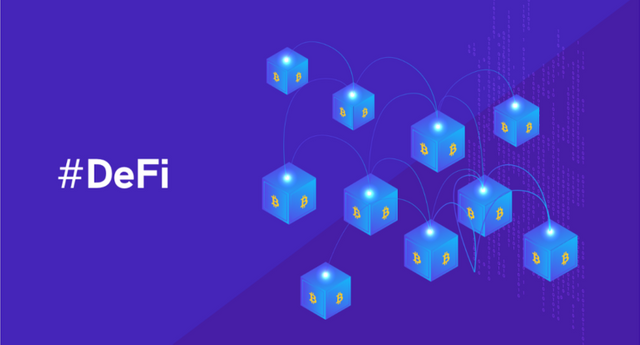DeFi on the Up - End of the Line for Financial Market Regulation?

Specialist lawyer Lutz Auffenberg and his law firm Fin Law have specialized in the field of fintech and innovative technologies. In particular, blockchain technology and its regulation are the focus of his activities. In his guest article he deals with the upward trend of DeFi and financial market regulation.
For a few months now, projects have been gaining in importance that deal with the provision of applications in the decentralized financial market. The buzzword Decentralized Finance or “DeFi” for short is understood to mean decentralized smart contract applications (dApps) that enable users to conduct business in the financial market without having to involve a central service provider. The most prominent example are decentralized exchange platforms (DEX), which, without a central platform operator, offer users the option of exchanging crypto values for other crypto values via an automated smart contract on a blockchain infrastructure. In any case, the operation of an exchange platform for crypto values is usually an activity requiring a permit under German banking supervisory law, so that the platform operator may not operate the platform without permission from the responsible supervisory authority BaFin and subsequent supervision by BaFin and the Deutsche Bundesbank. If there is no exchange platform but an operator, the question of the starting point for financial market regulation arises.
DEX as a multilateral trading system without an operator
When operating exchange platforms for crypto values, according to German banking supervisory law, the fulfillment of several banking transactions or financial services at the same time, which can result in a license requirement. It is conceivable that an exchange platform could be operated by way of investment brokerage, proprietary trading, finance commission business or in the form of a multilateral trading system. In order to trigger a license requirement with subsequent institutional supervision under the Banking Act (KWG), the activity must be carried out by an operator who can be the addressee of the regulatory obligations, especially since the KWG only requires a license if "someone" (legal wording: “Who”) conducts banking business or provides financial services commercially or on a commercial scale in Germany. It is therefore conceivable that a decentralized exchange service that automatically executes exchange orders from users for crypto values via a smart contract qualifies as a multilateral trading system within the meaning of the KWG, but does not require a permit because there is no operator.
The specific contribution made by the initiators determines whether the permit is required
The lack of a classic operator in DeFi projects is not a matter of course, however, which could be assumed as a fact without further examination of the project implementation. Rather, it is also conceivable in individual cases that the specific contribution of an initiator or project participant in the implementation of a DeFi project can be classified as an operation within the meaning of the permit of the KWG. This could be the case, for example, with projects that do not function completely decentrally, but in which there is ultimately a central instance in the background that reserves administrator rights with regard to the underlying smart contract in order to be able to influence the processing of transactions. In individual cases, it will depend on the specific scope of such administrator rights in order to be able to make a supervisory decision on the operator status of a project participant. In addition, a permit requirement under the KWG would only come into consideration if the operator concerned also acted commercially or to a commercial extent and had a specific connection to the Federal Republic of Germany.
New regulatory approaches needed for DeFi
The current financial market regulation can hardly cover DeFi projects without an operator. DeFi systems are often withdrawn from supervision by the responsible authorities and thus also from the obligation to comply with financial market regulatory compliance obligations. For the stability and integrity of the financial markets as well as for investor protection, however, a completely unregulated area in the financial sector means considerable dangers. For example, errors in the code can lead to irreversible damage to users and the markets. Money laundering prevention does not take place without a central operator, who can be obliged to carry out auditing, documentation and reporting measures by the money laundering regulation. Without an operator, the general requirements placed on institutes, such as the provision of appropriate and effective risk management and adequate IT security, cannot be guaranteed. The creation of an effective and appropriate regulatory regime for DeFi projects should therefore be tackled as soon as possible. In order to avoid national patchwork regulation, the inclusion of the topic in the planned Markets in the Crypto Assets Regulation (MiCA) by the EU Commission would be very desirable.